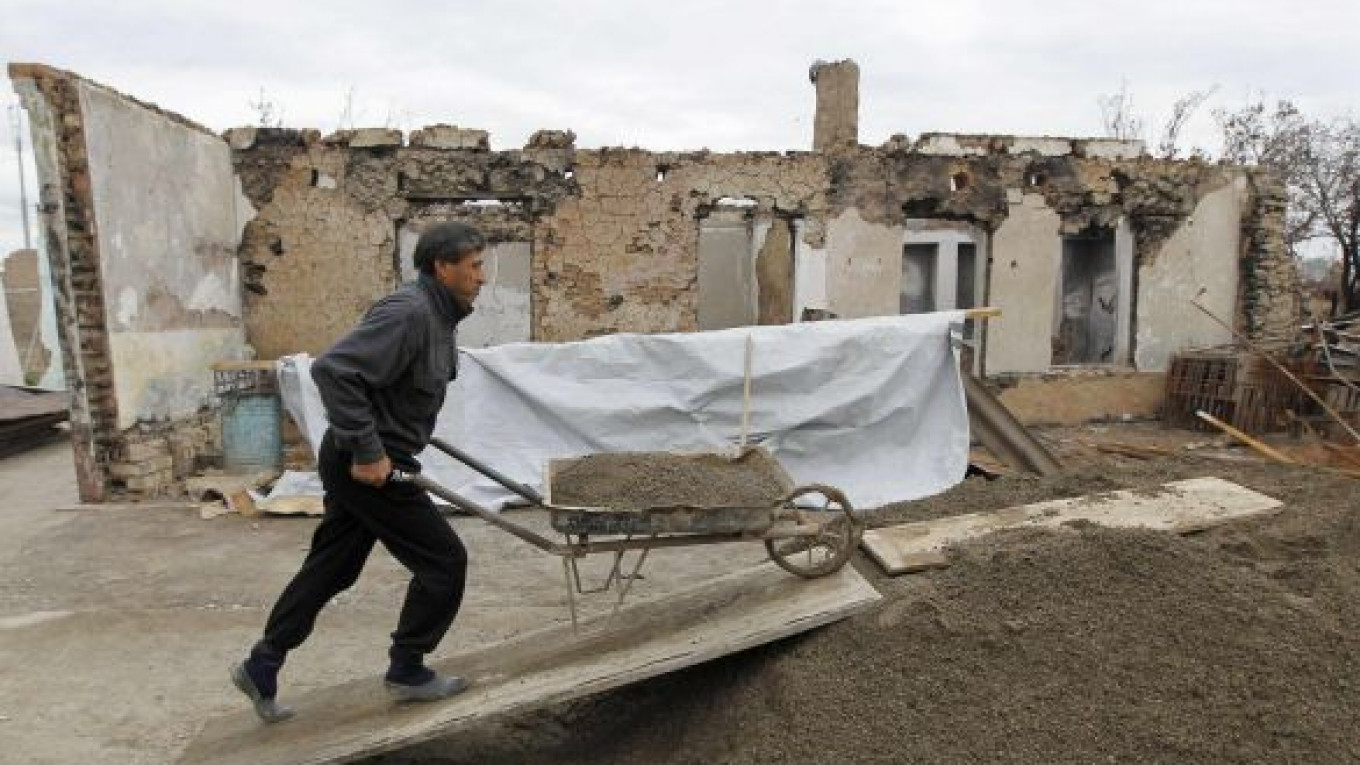BISHKEK, Kyrgyzstan — The five political parties that won seats in Kyrgyzstan's new parliament have agreed to a vote recount, a party official said Wednesday, after concerns about irregularities and protests from losing party supporters.
Kyrgyzstan is trying to create the first parliamentary democracy in Central Asia, a region dominated by post-Soviet strongmen, four months after hundreds of people were killed in ethnic violence and six months after President Kurmanbek Bakiyev was overthrown in a revolt.
Akylbek Zhaparov, one of the leaders of the third-placed Ar-Namys party, said there was uncertainty about the number of votes cast in Sunday's election.
The recount could admit a sixth party to the parliament, which will have greater powers than the president.
Divisions among the parties mean difficult coalition talks lie ahead. None of the successful parties won more than 9 percent of the vote, and a three-party coalition would be needed to command a majority of the 120 seats.
More than 60 percent of voters cast ballots for 24 parties that failed to win seats.
Illustrating the potential for violence among those who voted for parties that lost out, up to 1,000 Butun Kyrgyzstan supporters held a rally on Tuesday in Osh, scene of the worst ethnic violence in Kyrgyzstan's modern history, saying the vote was rigged.
Zhaparov told a news conference in Bishkek that results of the recount would be known in a day or two and did not rule out the possibility that Butun Kyrgyzstan, which came sixth in the poll, might win seats.
Kyrgyzstan hosts air bases for the United States and Russia. Washington uses its base to support the war in Afghanistan and has expressed support for the parliamentary model.
Susan Elliott, U.S. deputy assistant secretary of state for South and Central Asian affairs, said Washington would work with Kyrgyzstan's new leaders and expected to reach agreement on its continued presence at the Manas air base.
"We are meeting with all the parties who will be involved in forming the government," she said. "We haven't finished those meetings, but I know that we will be able to come to agreement about the continuation of the transit center."
Russia opposes the parliamentary model, saying it could expose the country to more violence or a power grab by Islamist militants.
Zhaparov said the five winning parties had agreed that there might be irregularities over the number of people who voted. He said the total of 2.85 million voters previously announced appeared to have swollen by nearly 200,000 to more than 3 million.
"We understand that the places of the parties that passed into parliament may change now," he said. "All the parties understand this, and have agreed to this."
The Central Elections Commission would agree to a recount should there be any doubt about the result, said its chairman, Akylbek Sariyev.
Adakhan Madumarov, leader of Butun Kyrgyzstan, said he was confident that his party had passed the 5 percent threshold needed to enter parliament. The initial count showed it had 4.8 percent of the vote. "Where did those 200,000 additional votes come from?" he said.
Ar-Namys, led by former Prime Minister Felix Kulov, came third in the election after campaigning on the basis of close ties with Russia. It won 7.7 percent to become one of the five parties to enter the parliament.
Ata Zhurt, a Kyrgyz nationalist party whose membership includes many former colleagues of Bakiyev, won 8.8 percent of the vote.
About 50 people, mostly friends and relatives of those killed when troops loyal to Bakiyev opened fire on crowds during the April revolt, gathered in Bishkek in protest against Ata Zhurt's success.
A Message from The Moscow Times:
Dear readers,
We are facing unprecedented challenges. Russia's Prosecutor General's Office has designated The Moscow Times as an "undesirable" organization, criminalizing our work and putting our staff at risk of prosecution. This follows our earlier unjust labeling as a "foreign agent."
These actions are direct attempts to silence independent journalism in Russia. The authorities claim our work "discredits the decisions of the Russian leadership." We see things differently: we strive to provide accurate, unbiased reporting on Russia.
We, the journalists of The Moscow Times, refuse to be silenced. But to continue our work, we need your help.
Your support, no matter how small, makes a world of difference. If you can, please support us monthly starting from just $2. It's quick to set up, and every contribution makes a significant impact.
By supporting The Moscow Times, you're defending open, independent journalism in the face of repression. Thank you for standing with us.
Remind me later.






